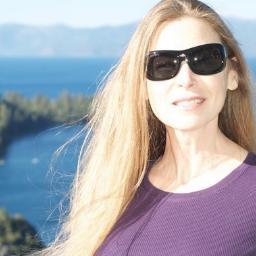“Meraki is a modern Greek word which means to put something of yourself into what you’re doing: passion, love, creativity, all the good stuff, and only the good stuff.”
In this episode of Meraki Radio: Perspectives, Alison B is joined by Alonna Shaw, Brian K, & Deema Tamimi. They discuss white privilege. Out of this show is born our newest series, Pass the Mic, where we are featuring people of color from the community.
Listen LIVE: The thirty-minute interview will air live July 7, 2020, at 12:30 p.m. Pacific Daylight Time; and replayed at 5:30 p.m. PDT on KDRT.org streaming and 95.7FM in Davis, California.
➙Listen anytime.
Like many, I naively thought being not racist pointed to something good in our hearts and that we needed to open our hearts to solve racism. That’s not enough, I needed to open my brain and go into the discomfort of learning I was wrong and shifted to being anti-racist.
Here’s an infographic, which explains the stages of becoming anti-racist: fear zone, learning zone, growth zone.
| "Becoming Anti-Racist" infographic from www.SurgeryRedesign.com |
Here’s Alison B from the Meraki radio conversation: The ugly side of American culture is white privilege. Arguably, the real pandemic in our country is racism; it’s not the COVID-19 virus—that’s a problem, but look who it’s really affecting. Behaviors have an impact on everyone around you.
Anti-racism. To understand privilege, step back in time and think about the act of being taken from home and family, being a thing filling a cargo hold, being a commodity sold at auction, being treated as a beast of burden; being stripped of dignity and health and happiness, separated from loved ones, being unable to belong to a place, being unable to build a future, being unable to own a home, being unable to access what other citizens can, being without the right to have a say when things go wrong even after given the vote, being called so many things the pressure of the labels press the life out of hope, being broken, being killed. Privilege in this land-of-the-free country, at present, isn’t for all. Where are our social and legal contracts failing?
- the policy or practice of opposing racism and promoting racial tolerance
- adherence to the view that racism is a social evil
There are many ways available to white people to make this a country for all, truly for all, not just some. The following two articles inspired me to realize white privilege is the foundational problem. How do we go forward? Recognize, accept, and become part of the solution.
If we consider life on this planet like lights astronauts see from space—how do we, as a nation which is part of a global community, do better? Perhaps by stepping onto the path of vulnerability.
In the Paris Review (March 25, 2019), “White People Must Save Themselves from Whiteness,” Venita Blackburn writes, “Part of growing up is realizing our parents are extremely flawed human beings. Recognizing the same in a nation is called being a citizen. It is not easy. Accepting vulnerability is not just psychological, it is also physical. To deny that the institution of whiteness impacts us all is to be open to harm.” And, “In truth, everyone knows that tribalism, and the lie of racism, could be eradicated, but no one agrees on the method. The only real solution is vulnerability, and that is no easy choice. To give up whiteness is to become vulnerable, to confront the deep tears in the psyche gouged over generations…”
In this Op-Ed from the Los Angeles Times (May 30, 2020), “Kareem Abdul-Jabbar: Don’t understand the protests? What you’re seeing is people pushed to the edge.” Jabbar continues, “The black community is used to the institutional racism inherent in education, the justice system and jobs. And even though we do all the conventional things to raise public and political awareness — write articulate and insightful pieces in the Atlantic, explain the continued devastation on CNN, support candidates who promise change — the needle hardly budges.”
Thank you for reading.
Organizations you can support, as listed on Meraki Radio's webpage:
Black Visions Collective (Minnesota local)
ReclaimTheBlock (Minnesota local)
TheLoveLandFoundation
JoinCampaignZero
8CantWait
ColorOfChange
BailProject
NAACP
ACLU
BlackLivesMatter
Voter related (local): Sister District Project CA-03
Historical information:
FiveThirtyEight article by Ryan Best, "Confederate Statues Were Never Really About Preserving History" (with visual data)
Some viewing resources:
Toni Morrison: The Pieces I Am (2019) is a beautiful meditation on her life and work and “the powerful themes she has confronted throughout her literary career.”
Ava DuVernay’s excellent documentary 13th is “an in-depth look at the prison system in the United States and how it reveals the nation’s history of racial inequality.”
Ava DuVernay’s When They See Us is based on the true story of five teens from Harlem falsely accused of a brutal attack in Central Park in 1989.
National Geographic’s LA92 (2017) and Showtime’s Burn Motherf*ucker, Burn! (2017) go into the Los Angeles riots in 1965 and 1992. On my watch list is John Singleton’s L.A. Burning: The Riots 25 Years Later (2017).
Jason Pollock’s Stranger Fruit (2017) about what happened to Michael Brown on August 9th, 2014 in Ferguson, Missouri.
Need a feel-good break and maybe a snack? Taste the Nation with Padma Lakshmi shines a light on diverse cultural influences through food. Yum! (I watched “The Gullah Way” first.)















